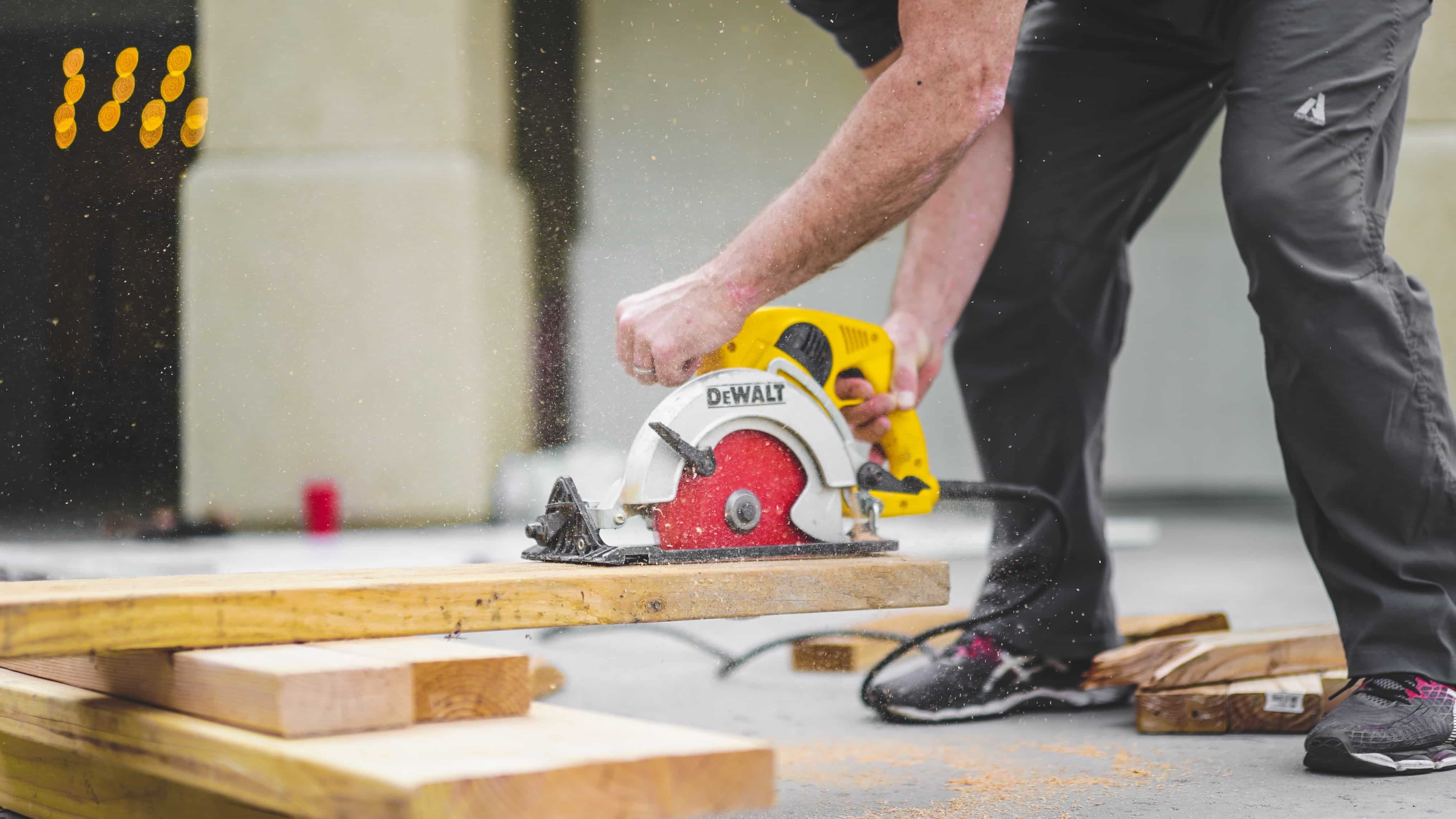The Ultimate Guide to Flipping Northern Michigan Homes for Maximum Profit
Introduction to House Flipping in Northern Michigan

Flipping houses in Northern Michigan has become a booming opportunity for real estate investors looking to capitalize on the region’s unique charm, steady market growth, and tourism-driven demand. This scenic and culturally rich area is attracting buyers from all over the country, especially retirees, remote workers, and vacationers. That means demand is steady—and rising.
So, what is house flipping exactly? In essence, it’s the process of purchasing a property, making strategic renovations or upgrades, and then selling it for a profit. But the key to success is timing, location, and understanding your market inside out—especially in Northern Michigan where the real estate dynamics differ significantly from those in urban areas.
Whether you’re a seasoned investor or a curious first-timer, this guide will walk you through everything you need to know to flip homes successfully in Northern Michigan—from choosing the right towns to mastering seasonal renovations.
Real Estate Market Overview
Current Market Trends in Northern Michigan
Northern Michigan’s housing market has shown resilience and adaptability over the past decade. Cities like Traverse City, Petoskey, and Charlevoix have become magnets for high-income homebuyers and seasonal residents. With limited housing inventory and increasing demand, property values have steadily climbed, creating an ideal environment for flipping homes.
Most Profitable Cities and Towns
Here are the top spots that offer high return potential:
-
Traverse City: High buyer demand and short time on market
-
Petoskey: Strong tourism and premium homebuyers
-
Boyne City: Up-and-coming area with rising appreciation rates
-
Cadillac: More affordable, great for entry-level flippers
Economic Drivers and Future Outlook
Tourism, remote work migration, and retirees moving upstate have fueled consistent demand in Northern Michigan. With continuous investment in infrastructure and lifestyle amenities, the region is poised for sustained real estate appreciation.
Identifying Ideal Properties
Characteristics of High-Potential Flip Homes
The best flip properties typically:
-
Are structurally sound but cosmetically outdated
-
Are in desirable school districts or near lakes/trails
-
Have a simple layout for easy renovation
Red Flags to Watch Out For
Avoid homes with:
-
Major foundation or roof issues
-
Outdated electrical or plumbing requiring full overhauls
-
Unpermitted additions or zoning violations
How to Analyze a Deal Properly
Use tools like the 70% Rule (Maximum Purchase Price = ARV × 70% - Repair Costs) and have a contractor give you a reliable estimate before closing the deal. Always factor in holding costs, commissions, and taxes.
Legal and Zoning Considerations

Zoning Laws in Key Counties
Understanding zoning regulations is crucial before purchasing any property in Northern Michigan. Each county—and sometimes each township—may have its own set of rules regarding residential improvements, permitted land use, and density requirements. For example:
-
Grand Traverse County requires permits for significant structural changes.
-
Charlevoix County enforces strict shoreline development rules.
-
Emmet County has specific ordinances for historic home renovations.
Make sure to check local ordinances and consult with zoning officials before making any commitments.
Permit Requirements
Many renovation tasks in Michigan—like electrical, plumbing, or structural changes—require permits. Skipping this step can lead to:
-
Legal fines
-
Delays in selling your property
-
Issues during buyer inspections or appraisals
Always secure the necessary building permits and keep records for resale.
Common Legal Pitfalls
Some legal missteps flippers often make include:
-
Ignoring HOA rules (some communities restrict flipping)
-
Under-disclosing issues during resale
-
Hiring unlicensed contractors
To avoid these, always work with a licensed real estate attorney and reputable professionals familiar with Michigan codes.
Financing Your Flip
Cash vs. Loan Options
If you have enough capital, cash offers are preferred—they close faster and often beat higher bids. However, not all flippers have that luxury. Loan options include:
-
Hard Money Loans – Short-term, high-interest loans based on property value.
-
Home Equity Loans – Ideal if you own property already.
-
Conventional Rehab Loans – Like FHA 203(k) loans for owner-occupied flips.
Hard Money Lenders in Michigan
Here are a few trusted hard money lenders operating in Northern Michigan:
-
LendingHome
-
Lima One Capital
-
Michigan Private Money
Always compare interest rates, points, and terms. Some lenders specialize in investor-friendly products.
Cost Estimation and Budgeting Tips
Budgeting is a make-or-break skill in house flipping. Here’s a simple budget breakdown:
-
Purchase Price: 60-70% of ARV
-
Renovations: 15-20% of ARV
-
Holding Costs: 5-10% (utilities, taxes, insurance)
-
Realtor Fees & Closing: 5-6%
Always pad your budget by 10-15% for surprises.
Building Your Flipping Team
Finding Contractors and Subcontractors
The quality of your renovation is only as good as the people you hire. For Michigan flips, look for:
-
Local contractors who know the area’s permitting process
-
Verified professionals with portfolios and referrals
-
Tradesmen licensed by the Michigan Department of Licensing and Regulatory Affairs
Partnering with Realtors and Inspectors
Realtors help you understand market value, while inspectors catch unseen issues before you buy. Look for agents with:
-
Experience in investment properties
-
Knowledge of the local flip market
-
A network of buyers looking for move-in-ready homes
The Role of Real Estate Attorneys
Michigan's disclosure and title laws can be tricky. A good attorney helps:
-
Review purchase agreements
-
Ensure permits are complete
-
Manage lien checks and title transfers
Renovation Strategies That Sell
High-ROI Improvements for Michigan Homes
Focus your budget on areas that yield the most return:
-
Kitchens and bathrooms: Updated countertops, cabinets, and fixtures
-
Curb appeal: Fresh paint, landscaping, new entry doors
-
Energy efficiency: Smart thermostats, insulation, updated windows
Curb Appeal vs. Structural Upgrades
Don’t underestimate first impressions. Homes with well-maintained exteriors draw in more potential buyers. However, never neglect:
-
Roofing
-
Foundation cracks
-
Electrical panels and HVAC units
These are deal-breakers if left unattended.
Season-Specific Renovation Tips
In Northern Michigan, consider:
-
Winter renovations: Focus on interiors, insulation, and heating upgrades
-
Summer renovations: Paint, roofing, decks, and landscaping
Plan your flip timeline around the weather to avoid delays and cost overruns.
Marketing and Selling the Flip

Staging and Photography Tips
A professionally staged home sells faster and for more money—especially in competitive markets like Traverse City or Petoskey. Here’s how to nail your presentation:
-
Use neutral tones and minimalist decor to appeal to more buyers.
-
Highlight unique Northern Michigan features like wood-burning stoves or lake views.
-
Hire a professional photographer to capture the property in natural light.
Don’t forget to include exterior photos in all seasons—especially if you’ve enhanced the curb appeal.
Listing Strategies for Fast Sales
Your listing description should focus on:
-
Key upgrades (e.g., “new kitchen,” “energy-efficient windows”)
-
Location benefits (“walk to downtown,” “5 minutes from the lake”)
-
Target buyer needs (“perfect for remote workers” or “ideal vacation rental”)
List on Zillow, Realtor.com, and local MLS databases. For even more exposure, use Facebook Marketplace and Northern Michigan-specific real estate groups.
Open Houses and Virtual Tours
Host weekend open houses with refreshments to create a welcoming atmosphere. Better yet, provide:
-
Virtual tours with 360° walkthroughs
-
Live video tours on Instagram or Facebook for out-of-state buyers
-
Printed flyers with key renovation info and contact details
These strategies increase buyer confidence and often spark bidding wars.
Seasonal Challenges and Opportunities
Flipping in Winter vs. Summer
Winter brings harsh weather, snow-covered driveways, and fewer buyers—but less competition and lower property prices. Use this time to:
-
Renovate interiors
-
Prepare spring listings
-
Buy fixer-uppers at a discount
Summer is prime selling season. Use it for:
-
Exterior upgrades
-
Hosting open houses
-
Fast property turnover
Tourist Seasons and Timing Your Sale
Aim to list your property before peak tourist seasons:
-
Memorial Day to Labor Day is the sweet spot for lakefront or vacation-home flips.
-
For residential neighborhoods, target spring when families begin house hunting before the new school year.
Time your marketing and final reveal with local festivals or events to draw extra traffic.
Managing Risks in Home Flipping
Common Mistakes by First-Time Flippers
Avoid these beginner blunders:
-
Underestimating renovation costs
-
Over-improving for the neighborhood
-
Neglecting inspections before purchase
-
Poor contractor vetting
The biggest mistake? Emotionally investing in the home. Always treat it like a business.
How to Handle Unexpected Costs
Set aside a 10-15% emergency fund in your budget. Common surprise expenses include:
-
Mold or water damage
-
Unpermitted work from previous owners
-
Outdated electrical or plumbing systems
Get multiple contractor bids and plan for contingencies from day one.
Insurance and Liability Coverage
Protect your investment with:
-
Builder’s Risk Insurance during renovations
-
General Liability Insurance for injuries on-site
-
Vacant Property Coverage if the home is unoccupied
Speak with a local insurance broker to tailor a policy for your specific project.
Taxation and Profit Planning

Capital Gains Taxes in Michigan
Profits from flipping homes are subject to short-term capital gains tax, which is taxed as ordinary income. If you flip multiple homes a year, you might be considered a “dealer,” triggering additional IRS scrutiny.
Always consult a tax advisor familiar with real estate investing in Michigan.
Using 1031 Exchanges
You can defer capital gains taxes by reinvesting proceeds into another investment property using a 1031 exchange. However:
-
It doesn’t apply to personal homes
-
Strict timelines must be followed
-
It’s best for long-term investment strategies, not quick flips
Tracking Expenses and Deductions
Keep detailed records of:
-
Labor costs
-
Material receipts
-
Permits and inspections
-
Realtor fees
These can be deducted from your profits, reducing your taxable income. Use software like QuickBooks or work with a bookkeeper to stay organized.
Case Studies of Successful Flips
Before-and-After Projects in Traverse City
One investor purchased a 3-bedroom cottage for $150,000, spent $40,000 on renovations, and sold it for $265,000—all within six months. Key upgrades:
-
Open-concept kitchen with stainless appliances
-
Luxury vinyl plank flooring
-
Smart thermostat and LED lighting
The property was listed during cherry festival season and received 12 offers in one week.
Lessons from Failed Flips
Not every story has a happy ending. A buyer in Boyne Mountain skipped inspections, later discovering foundation issues that cost $25,000. After budget overruns, they broke even.
The takeaway? Inspect everything and never skip due diligence, no matter how hot the market seems.
Tools and Resources for Flippers
Real Estate Apps and Platforms
-
PropStream – For lead generation and property analysis
-
BiggerPockets – Community, calculators, and podcasts
-
Realtor.com + Zillow – Market research and comps
Local Networking Groups
-
Northern Michigan Real Estate Investors Meetup
-
Michigan REIA chapters
-
Local Chamber of Commerce mixers
Education and Training Resources
-
Michigan-based real estate courses
-
YouTube channels by Michigan flippers
-
Free classes offered by local banks or title companies
Sustainability and Green Flipping
Eco-Friendly Renovations
Green features not only save energy—they boost resale value:
-
Low-flow fixtures
-
Recycled countertops
-
Energy Star appliances
Buyers, especially millennials and retirees, are willing to pay more for eco-conscious homes.
Energy Efficiency Incentives in Michigan
The state offers rebates and incentives through:
-
DTE Energy
-
Consumers Energy
-
Michigan Saves
These can offset costs for HVAC, insulation, and solar panels.
Long-Term Strategy and Scaling
From One Flip to a Business
Once you’ve successfully flipped your first property:
-
Reinvest profits into multiple projects
-
Build a reputation with local agents and contractors
-
Create systems for estimating, bidding, and selling
Many investors form LLCs for tax and liability reasons.
Building Passive Income with Rentals
Some homes are better held than sold. Consider turning a finished flip into a vacation rental or long-term lease for passive income. With Northern Michigan’s tourism, this can create a steady cash flow stream year-round.
Frequently Asked Questions

1. Is flipping homes in Northern Michigan profitable?
Yes—if done right. The region has steady buyer demand, rising home values, and seasonal selling advantages.
2. How long does a typical flip take?
Most flips in Northern Michigan take 3 to 6 months, depending on renovation scale and season.
3. What’s the best city for beginners to flip homes?
Cadillac and Gaylord offer affordable entry points with growing demand.
4. Do I need a real estate license to flip houses?
No, but working with a licensed Realtor helps with buying, pricing, and selling properties.
5. Can I flip homes in the winter?
Yes, but stick to interior work and plan to list in early spring when buyer activity increases.
6. How much money do I need to start?
At least $40,000 to $60,000 if using loans; more if paying cash. Always include a safety buffer.
Conclusion

Flipping homes in Northern Michigan isn’t just about profit—it’s about transforming properties and communities. With the right strategy, team, and knowledge, you can turn run-down houses into dream homes while building a thriving business.
Whether you’re planning your first flip or scaling to your tenth, keep learning, stay local, and embrace the charm and opportunity of Michigan’s north.
Disclaimer
The information provided in this article, “The Guide to Flipping Northern Michigan Homes,” is for general informational and educational purposes only. It does not constitute legal, financial, or real estate advice. While every effort has been made to ensure the accuracy of the content, laws, regulations, and market conditions may change over time and vary by location. Readers are strongly encouraged to consult with licensed professionals such as real estate agents, attorneys, accountants, or local authorities before making any investment decisions. The author and publisher disclaim any liability arising directly or indirectly from the use of this information.
Continue Your Northern Michigan Real Estate Search
Explore homes and real estate in the Northern Michigan communities below or contact Brook Walsh to help you with your search.


Leave A Comment